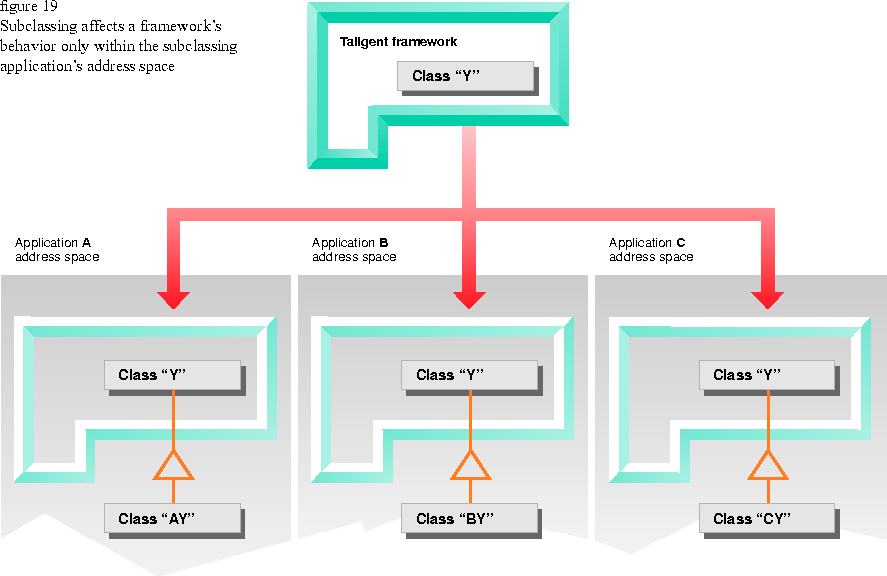
Taligent system software maps a copy of a framework into the virtual memory address spaces of all applications that are using it. There is only one physical copy of the original framework, and it is shared simultaneously by all these applications. An application can modify its mapped copy of the framework for use within its address space without interfering with other applications' modifications of the same framework for use within their address spaces.
This conservative approach makes for a more robust system than would otherwise be
possible. Applications can be written and tested assuming one reliable version of
the system libraries rather than having to take all possible combinations of
patched system libraries into account. Similarly, if an application crashes, it
is isolated from the rest of the system and generally can't affect
other applications.
In the Taligent programming model, programs do not typically need to "patch the
system" on a global basis, except for some areas, such as installing fonts, that
involve the system as a whole. Nevertheless, it is possible for knowledgeable
programmers to replace libraries on a global basis with specialized runtime
implementations.
[Contents]
[Previous]
[Next]